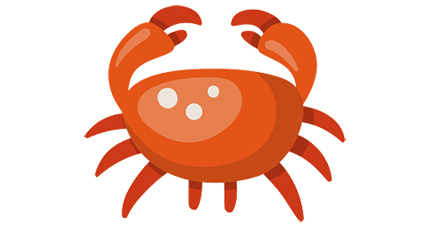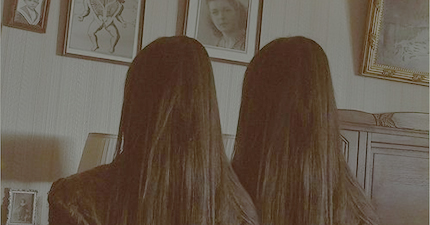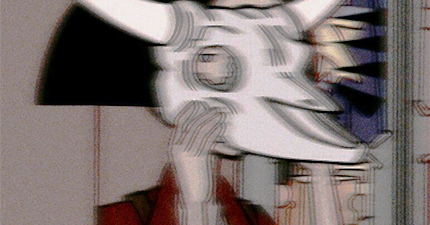There’s something that I hear over and over again, which I’m sure that other healing practitioners also hear over and over again, that I’m absolutely sick of hearing (not really, it’s just that hearing this makes me taste sadness a little bit always).
“I chose the wrong people when I was a teenager.” “I need to learn how to stop choosing the wrong people.” “I choose masochistic relationships, relationships that hurt me.” “I attract the wrong people.”
“I shouldn’t have gone there without telling anyone where I was.” “I should have dressed differently.” “I shouldn’t have had the ambition that was taken from me and exploited.”
I get why people say this. I say it too. It is painful to think to ourselves that we could have avoided some type of pain or some type of abuse by choosing differently, by being smarter, or by becoming another type of person relationally but it is less painful than accepting that we could not, and will never be able to, control the ways that other people might choose or choose not to hurt us. The first one feels like regret and lives burdened with guilt. The second one is about recognizing the limits of our control, the limits of our responsibility. When you don’t control the ways that other people treat you, things feel precarious all of a sudden.
Suddenly, you might feel very, very angry. You might feel very, very sad. This anger, this fierce protection of yourself, isn’t so accessible when you choose regret and guilt instead. This sadness, this grieving of self, isn’t so available. Instead, when you believe that you could have avoided the abuse that someone else enacted upon you by choosing differently, there is a self anger, an anger directed at your own vulnerability.
The expectations that this regret has of you are inexplicably high. This regret tells you that you should be able to somehow recognize the abuser from the nonabuser, even if you are just beginning to identify pain now, as someone who survived. We lack the language to distinguish between abusive people and abusive systems and, yet, regret tells us that we are able to predict the future, that we are able to predict the actions of other people in the future, and that we should be able to predict how a person reacts to abusive systems in the future.
“Never again. I’ll never choose so recklessly again. I’ll close myself off to everyone until they prove themselves. I’ll never allow myself to be so idiotically vulnerable again.”
But your availability to new attachment, that big openness, that hope that you can love and love someone without having to worry over whether or not they will hurt you—that keeps you alive.
It keeps you alive.
It keeps you alive.
If it makes you feel like an idiot, then maybe you have the right to be an idiot.
If an idiot is someone who can’t tell who will choose to hurt them, who will feel coerced by a system to hurt them, because that idiot can’t read minds or tell the future, then so be it. Be that idiot. Maybe that idiot doesn’t believe in such a fatalistic future. Maybe the function of that idiot is to believe that different futures than the futures that are available are possible.
That idiot knows that, because we cannot outsmart or predict pain, we also cannot blame ourselves for not knowing that we could get hurt. Sometimes, that idiot is the kid who, having fallen and scraped their knee, tries running again. Sometimes, that kid needs some time before they want to run again. Always, that kid recognizes that it would be cruel to expect themselves to predict the scraping of their knee, especially if someone else pushed them down.
Sometimes, I see this happening not just on a personal level but on a social one. We blame people for choosing people who we recognize, in some way, as harmful. We tell people to avoid people who we understand to have harmed either ourselves or people who we know.
Sometimes, we judge people based on who they are seen talking to as if we are supposed to know everything that anyone we talk to has done. We treat ourselves and our communities as though we are meant to be surveillance objects. We blame each other for choosing “the wrong people.”
I’ve done this too, back in my early twenties. When I did this, I couldn’t believe that my friend was choosing a person who I recognized to have hurt another person I knew and loved.
Does suspicion try to protect us? Sure. Does regret attempt to warn us? Of course. And, yet, there was nothing about me that gave me the license to tell someone else whether or not they could allow themselves to be open and available and with whom.
I’ve had to learn, since, that, if someone doesn’t hear the same regret or suspicion that you do, that this doesn’t mean that they don’t recognize your pain. Sometimes, it means that they have a different attachment style than you do. Sometimes, they choose to run on the same ground even after seeing you with a knee scraped on that ground. Sometimes, they have a different experience than you do with the same person or under the same system. And they might still recognize you.
And, sometimes, that person is yourself. Because you’ve changed, as people tend to do.
You’ve grown to love your idiot self, to cherish it, to celebrate it. You’ve realized that there is a time and a place for it and that, in your dream world, that there will always be a time and a place for it—that there needs to be a time a place for idiocy and silliness and ridiculousness when you dream.
Andy Lau sings that God loves dumb kids, that God plans for them. He sings that smart kids are cool but that dumb kids are cute.
I just came out of a workshop about reclaiming pleasure taught by Kai Cheng Thom. In this workshop, the issue of objectification came up. We celebrated the ways in which marginalized people take back their own objectification and use it for pleasure and for survival.
And, yet, when we take back our own images, we are not wholly responsible for them. That’s the violence of objectification.
There’s a push and pull here. There’s the envisioning of responsibility, the dreaming of being capable of responsibility that we are unable to take on in the present because of powerlessness, there is the responsibility created by acting as though that responsibility is possible already, and then there is also the impossibility of predicting or controlling what someone else may decide to act around or towards you.
There is a time and a place where you have built responsibility and there is also a time and a place that you have built to protect your right to be an idiot.
These two places, as it turns out, aren’t so separate or so different after all. They need each other to exist. Allowing yourself availability is sometimes the same as allowing yourself responsibility.
There’s a function to regret. Regret tries to protect you but regret also has its own biases. Regret wishes that you were able to know something before you were able to learn it. If allowed to, regret will take valuable experience away from you.
Your availability matters. If you are able to live as though you do not have to worry about someone hurting you, do not dismiss this hope as naive or lucky or dumb luck. Your ability to attach keeps you alive. You don’t have to earn it. You shouldn’t have to earn it, even if you have to fight for it. You shouldn’t have to earn it through intelligence or self sacrifice or adequate suspicion. You were born to love.


